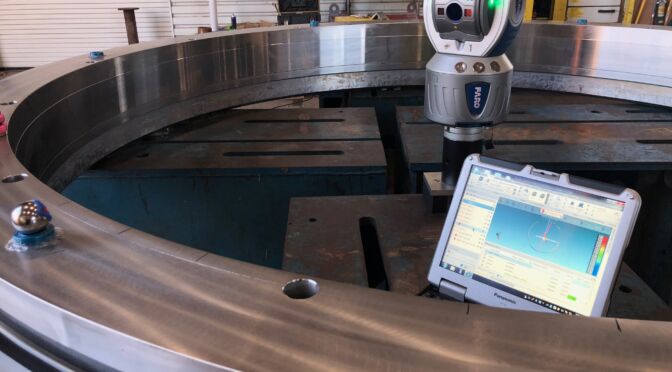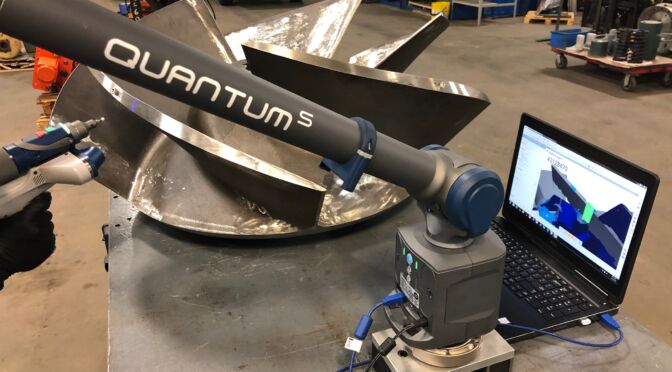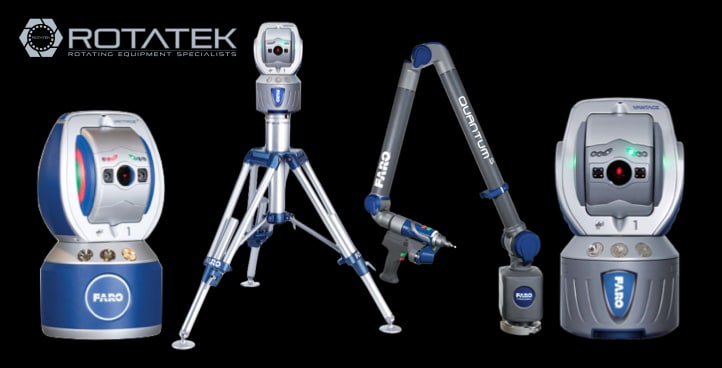Rotatek’s 3D Metrology Services involves the use of specialized equipment and techniques to precisely measure the position, orientation and physical geometrical characteristics of an object, surface or environment in three-dimensions. These advanced measurement services are used in various industries, including power generation, aerospace, shipbuilding, manufacturing, and more.
At Rotatek, our Field Service Engineers employ advanced technologies and processes to accurately capture the three-dimensional geometry of objects. Equipment used for this purpose includes Portable Coordinate Measuring Machines (PCMMs).
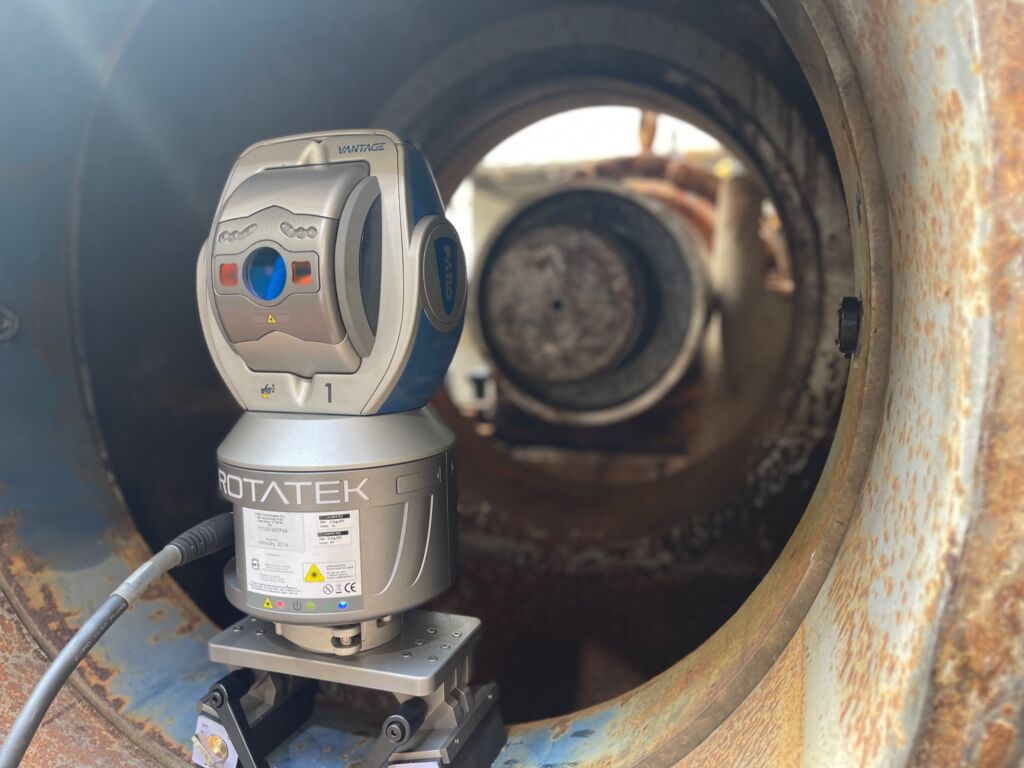
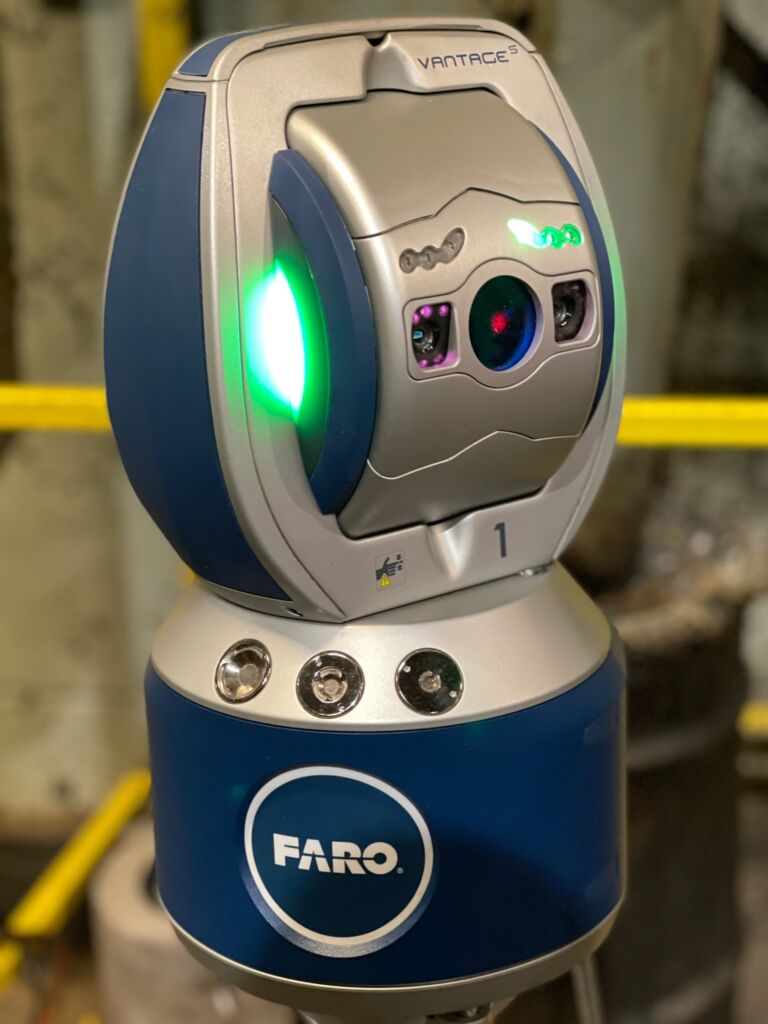
PCMMs are precision devices used to measure the geometry of physical objects by sensing discrete points on the surface of the object with a contact or non-contact based probe or scanner. Unlike standard Coordinate Measuring Machines (CMMs), which are fixed in place, PCMMs are portable and can be used on the shop floor or out in the field, making them the perfect choice for precision measurements for various applications. PCMMs offer a range of measurement capabilities including 3D Alignment, Inspection, Reverse Engineering and Virtual Assembly. These devices can be used with computer-aided design (CAD) software to create a digital 3D model of the measured object.
Types of PCMMs include laser trackers, articulating arm and scanners.
Once the 3D data is captured using the chosen technology, it undergoes extensive processing and analysis to create usable models. Software applications help convert point clouds into polygonal models or other formats suitable for the specific application, such as CAD models.
In product design and quality control, 3D measurements are used to verify dimensions, form, and ensure products meet specifications.
Overall, 3D Measurement Services play a vital role in enhancing precision, efficiency, and innovation across numerous industries, facilitating better design, analysis, and decision-making processes.
3d Metrology Services
how Can we Help you?
Our expert team is ready to help you with your next project. Explore the industries we serve or contact us to learn more.
Portable Coordinating Measurement Machines
Laser Trackers
A laser tracker is a high-precision measurement instrument used in the field of metrology. It is designed to accurately measure the position and orientation of objects or surfaces in three-dimensional space.
The process:
- The basic principal of a laser tracker involves the emission of a laser beam from the instrument’s tracker head towards a target.
- The target reflects the laser beam back to the tracker, allowing it to calculate the distance between the tracker and the target.
- By measuring the angles and distances to multiple targets, the laser tracker can determine the precise location and orientation of the targets in 3D space.
Laser trackers are known for their large measurement volume, long-range capabilities and high accuracy. They can measure points over distances ranging from a few meters to hundreds of meters, depending on the specific model. The accuracy of laser trackers is typically within a few micrometers or even smaller, making them suitable for applications that require precise dimensional measurements, alignment or inspection.
Laser trackers are often used for tasks such as:
- Large-scale part inspection and quality control
- Alignment and assembly of complex structures and machinery
- Calibration of machine tools and robotic systems
- Reverse engineering and digitization of physical objects
- Monitoring and verification of deformation or movement in structures
Overall, laser trackers are versatile tools that provide highly accurate and portable measurement capabilities in various industrial and engineering applications.
Arms
Articulating arms use rotary encoders in multiple axes and probes to capture points on an object’s surface.
Scanners
A 3D Scanner is a device that captures the geometry and appearance of physical objects to crate digital 3D models. It uses various technologies to collect data about the shape, texture and color of an object, and then processes that data to generate a digital representation of the object in three dimensions.
3D Scanners find applications in various industries, including manufacturing, engineering and architecture. They are used for reverse engineering, quality control, digital prototyping and many other purposes where accurate 3D models are required.
3D Measurements
3D Measurement saves you time and money when compared to traditional measuring methods. Measurement results are available in real-time and a graphical report makes it easy to compare results after corrections. Results can be used in CAD software for further analysis.

